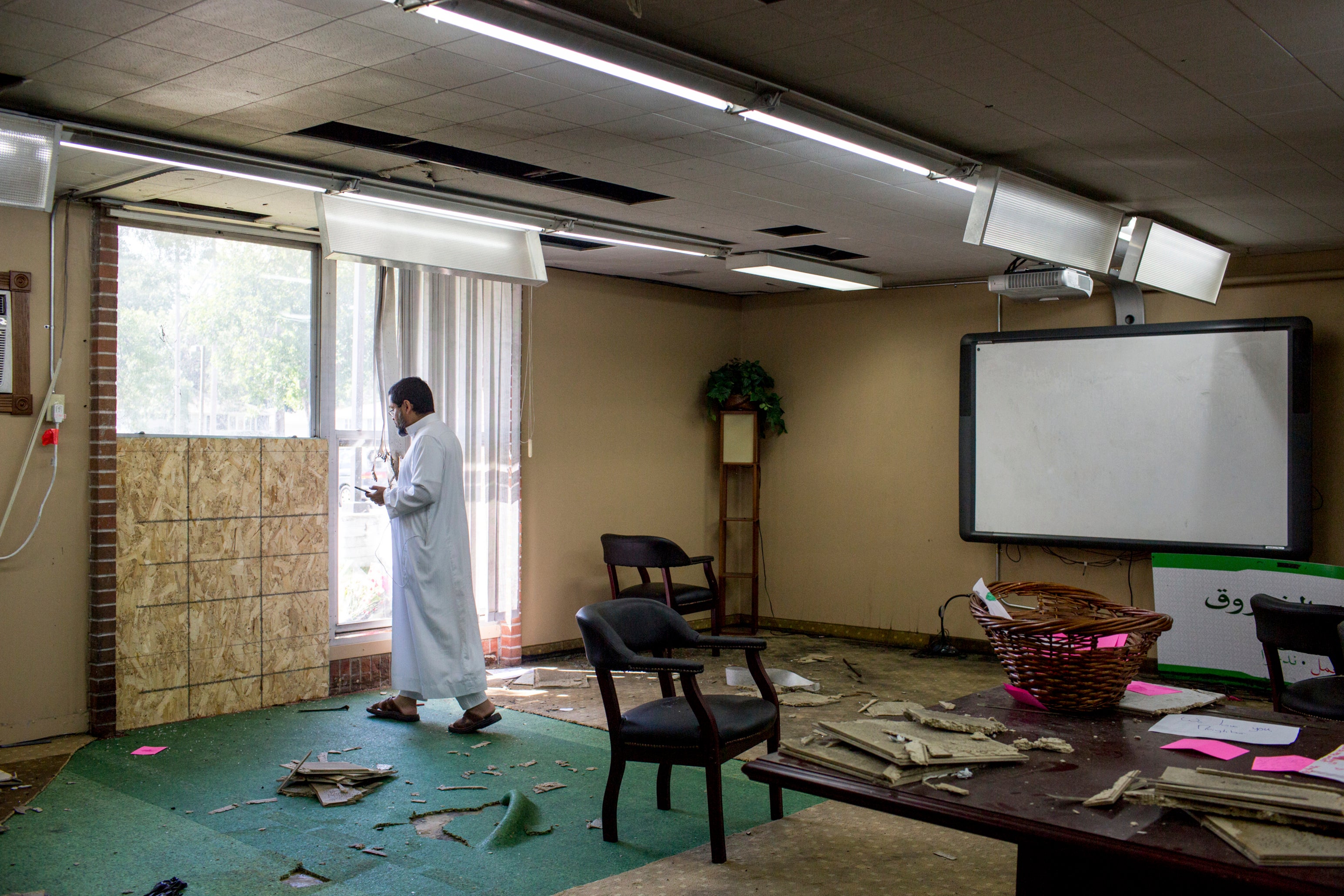Prosecutors: Man's hatred was behind Minnesota mosque attack
Prosecutors say the leader of an anti-government group in Illinois that organized the 2017 bombing of a Minnesota mosque acted on hateful beliefs toward Muslims

Your support helps us to tell the story
From reproductive rights to climate change to Big Tech, The Independent is on the ground when the story is developing. Whether it's investigating the financials of Elon Musk's pro-Trump PAC or producing our latest documentary, 'The A Word', which shines a light on the American women fighting for reproductive rights, we know how important it is to parse out the facts from the messaging.
At such a critical moment in US history, we need reporters on the ground. Your donation allows us to keep sending journalists to speak to both sides of the story.
The Independent is trusted by Americans across the entire political spectrum. And unlike many other quality news outlets, we choose not to lock Americans out of our reporting and analysis with paywalls. We believe quality journalism should be available to everyone, paid for by those who can afford it.
Your support makes all the difference.The leader of an anti-government group in Illinois and alleged mastermind behind a 2017 attack on a Minnesota mosque was acting on his hateful beliefs toward Muslims when he came up with a plan to pipe bomb the building during morning prayers prosecutors said Monday.
But defense attorneys for Michael Hari, 49, said during opening statements in his trial that there is no forensic evidence showing Hari was even at the mosque during the early morning bombing, which didn't cause any injuries but frightened community members.
“This case is about hatred. It’s about prejudice,” Assistant U.S. Attorney Allison Ethen said. “It’s about how Michael Hari used his hatred to justify physical violence against his victims.”
Hari has pleaded not guilty to multiple civil rights and hate crimes, including damaging property because of its religious character, forcibly obstructing the free exercise of religious beliefs, conspiracy to commit felonies with fire and explosives, using a destructive device in a crime of violence, and possessing an unregistered destructive device.
Several men were gathered at Dar al-Farooq for early morning prayers on Aug. 5, 2017, when a pipe bomb was thrown through the window of an imam’s office. A seven-month investigation led authorities to Clarence, Illinois, a rural community about 120 miles (190 kilometers) south of Chicago, where Hari and his co-defendants lived.
Prosecutors said Hari — the leader of an anti-government group called the White Rabbits — came up with the plan for the attack. It’s not clear how the White Rabbits became aware of Dar al-Farooq, but the mosque in the Minneapolis suburb of Bloomington was in headlines in the years before the attack: Some young people from Minnesota who traveled to Syria to join the Islamic State group had worshipped there. Mosque leaders were never accused of any wrongdoing.
Hari allegedly picked Dar al-Farooq because it was far enough away from the White Rabbits’ central Illinois hometown that he thought they wouldn’t be suspected.
Mohamed Omar, executive director of the mosque, was in the building during the explosion. He testified Monday through an interpreter that he felt a heavy feeling on his skin, before realizing what had occurred.
“I thought I was having a nightmare,” Omar said.
Hari's attorney, James Becker, told jurors that prosecutors have no meaningful forensic evidence that points to Hari's involvement in the attack. He also said there are inconsistencies in the testimonies of his co-defendants, Joe Morris and Michael McWhorter, who are cooperating with investigators. Becker urged the jury to keep an “open ear and independent mind” as the government attempts to prove Hari's guilt without a reasonable doubt.
“Your solemn duty, as I believe you understand, is to put them to the test,” he said to the jury.
Ethen, the prosecutor, told jurors how FBI investigators tracked Hari back to Illinois. Ethen also described the fear that permeated the community that worships at the mosque, and said the attack led many to stop worshipping there.
“The detonation of that bomb shattered the Dar Al-Farooq community,” Ethen said. “That bomb forever and irrevocably changed their right to freely their religion in America.”
Hari, McWhorter and Morris were also charged in a failed November 2017 attack on an abortion clinic in Champaign, Illinois; and plea agreements for McWhorter and Morris say the men participated in an armed home invasion in Indiana and the armed robberies or attempted armed robberies of two Walmart stores in Illinois.
Hari, a former sheriff’s deputy and self-described entrepreneur and watermelon farmer, gained attention on the “Dr. Phil” talk show after he fled to the South American nation of Belize in the early 2000s during a custody dispute. He was convicted of child abduction and sentenced to probation.
Before his 2018 arrest in the mosque bombing, he used the screen name “Illinois Patriot” to post more than a dozen videos to YouTube, most of them anti-government monologues. In one video just days before his arrest, Hari said FBI and local law enforcement were terrorizing Clarence, and he asked “freedom-loving people everywhere to come and help us.”
___
Mohamed Ibrahim is a corps member for the Associated Press/Report for America Statehouse News Initiative. Report for America is a nonprofit national service program that places journalists in local newsrooms to report on undercovered issues.